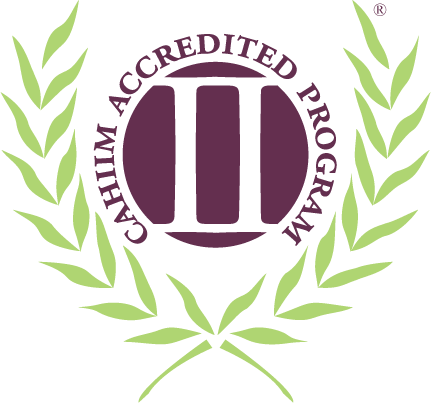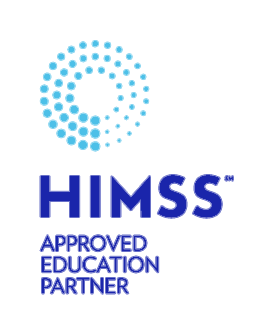


INFORMATICS CAREER OUTCOME NUMBERS (ICON)
-Launch Your Career in Informatics-
Biomedical Informatics is a growing field that optimizes the use of information in health care. Employment opportunities can be found in pharmacies, hospitals, insurance companies, technology startups, medical research labs, and more. The training required will depend upon an individual’s education and experiential background. Post-baccalaureate certificates and master’s degrees are most common. PhD’s and professional doctoral degrees are for researchers and executives.
McWilliams School of Biomedical Informatics
Graduate Degrees
McWilliams School of Biomedical Informatics offers graduate programs that meet your needs when launching your career in Informatics.
Admission Deadlines
| PROGRAM | FALL | SPRING | SUMMER |
| Certificate | July 1 | November 1 | March 1 |
| Master's | July 1 | November 1 | March 1 |
| PhD | December 1 | July 1 | N/A |
| DHI | March 1 | Only one DHI cohort will be admitted annually. | |
We also offer a Dual Degree Programs in Public Health Informatics and a Dual Degree Program MD/MS in Biomedical Informatics.
One of the best things any prospective student can do is to research before choosing any major. The best option is one with a multidisciplinary focus. Health informatics is a multidisciplinary profession in one of the most stable fields in the United States. It is a great option for students looking for an in-demand career.
Are you looking to learn more about our different degree programs? Click the REQUEST MORE INFO button to get more information.
Since the financial crisis of 2008, occupations with growing demand have been few and far between. One category of jobs that has seen significant growth in advertised positions is the field of healthcare informatics.
As with most scientific fields, biomedical informatics researchers usually need a doctoral degree in order to conduct independent research. Biomedical informatics research professionals may find job opportunities working in private sector research or education. Those desiring to work in the healthcare industry supporting clinical care or developing technology generally need a master’s or professional doctoral degree. Biomedical informatics professionals are in high demand due to their ability to analyze data, solve problems, and design solutions.
Popular Careers Held By
McWilliams School of Biomedical Informatics Alumni
|
Edith K. Ballard, DHI, MsHIM, MBA, MHA 2025 DHI Alumna In her role as Vice President of Revenue Cycle Operations at Roswell Park Comprehensive Cancer Center (Buffalo, NY), Dr. Ballard leads enterprise-wide revenue operations strategy, automation optimization, advancement of artificial intelligence technologies, and data analytics to strengthen financial performance, transparency, and compliance. Dr. Ballard is recognized for aligning clinical documentation quality with revenue integrity through applied informatics and cross-functional collaboration, directly supporting patient-centered, high-value and quality cancer care and institutional sustainability. |
|
|
Ashish Joshi, PhD, MPH 2012 PhD Alumnus Dr. Joshi serves as Dean and Distinguished University Professor of the University of Memphis School of Public Health. He began the role on August 1, 2022 after serving at the City University of New York Graduate School of Public Health & Health Policy (CUNY SPH) for over a decade. His has an established career as a population health informatics researcher, innovator, entrepreneur, educator, administrator, and mentor. In addition to his administrative duties as dean, he continues his scholarly and research contributions toward improving the good health and well-being of individuals, families, and the communities they live in. |
|
|
Anne Miles, MS, MBA, OTR, PMP 2023 MS Alumna Anne works at Lone Star Family Health Center; a federally qualified health center (FQHC) with five locations in Montgomery and Walker counties. In her role as Director of Health Informatics, she is responsible for the management of clinical information systems including optimizing, standardizing, and reducing variation in workflows to maintain data integrity throughout the organization while maximizing the use of the electronic health record and other clinical information systems. She communicates with senior leadership regarding concerns and issues surrounding the use of clinical information systems that affect Meaningful Use, HIPAA, or other compliance or governmental incentive programs. |
|
|
Nnaemeka Okafor, MD, MS 2011 MS Alumnus Dr. Okafor works for Memorial Hermann Health System and is responsible for enterprise informatics and the expansion and utilization of virtual health and business intelligence, analytics, and data science for the health system. His role also requires that he develop informatics resources and serve as a trusted problem-solving liaison for clinicians, health system executives, Information Technology (IT) staff, and vendors. |
|
How Much Do UT Masters Graduates Earn?
How Much Do They Owe For Student Loans?
Average Earnings- 1st year - $92,498
- 5th year - $115,166
- 10th year - $134,774
Amount: $24,739
Master's in Biomedical Informatics
Biomedical Informatics
How Much Do UT PhD Graduates Earn?
How Much Do They Owe For Student Loans?
Average Earnings- 1st year - $105,900
- 10th year - $258,600
Amount: $31,535
PhD in Biomedical Informatics
Biomedical Informatics
McWilliams School of Biomedical Informatics Alumni Placements After Graduation
How long did it take to secure your health informatics position?
Footnotes
*The majority of these are high-level executives making more than $120,000 per year. Includes executive-level roles, self-employment and UTHealth employment.
Average Job Earnings Comparison for Different
UT Graduate Degree Types - Master's Graduate Degree
Minimum Salary Maximum Salary
Average Job Earnings Comparison for Different
UT Graduate Degree Types - PhD Graduate Degree
Minimum Salary Maximum Salary
Source: Discover Data @UTSEEK – Masters Degree and PhD Degree
Average Salary for Informatics Careers - Nationwide
| City | Average Salary | Minimum Salary | Maximum Salary |
|---|---|---|---|
| Indianapolis | $71,358 | $51,000 | $91,717 |
| Atlanta | $71,846 | $58,580 | $85,113 |
| Houston | $74,038 | $54,938 | $99,702 |
| Chicago | $77,856 | $56,010 | $99,702 |
| New York | 90,342 | $52,941 | $127,743 |
Sources:
Payscale.com - Informatics Salary and Health Informatics Salary
Please note: Salary information comes from 25,770 data points collected directly from employees, users, and past and present job advertisements on Indeed in the past 36 months. All salary figures are approximations based upon third party submissions to Payscale and Indeed. These figures are given to the Payscale and Indeed users for the purpose of generalized comparison only. Minimum wage may differ by jurisdiction and you should consult the employer for actual salary figures.
How Work Experience Impacts Income - Nationwide
Percentage of Respondents Average Salary
Source: PayScale.com - MS Informatics Salary
Popular Career Types in Health and Medical Informatics
by Position - Nationwide
Number of Persons Reported for Each Position Average Salary
Source: GlassDoor.com Medical Informatics Salaries
Updated: 06/2025
Biomedical Informatics Education Data
by Degree Type - Nationwide
| Degree Required |
Field of Study |
Median Salary (2016) |
Median Salary (2019) |
Median Salary (2023) |
Median Salary (2025) |
|
|---|---|---|---|---|---|---|
| Information Technology, IT Trainers | Masters | Information Sciences, Biomedical Informatics | $60,734* | $62,004* | $65,237* | $72,968* |
| Project Managers | Masters | Biomedical Informatics | $72,175* | $87,658* | $92,458* | $112,369* |
| Chief Nursing Informatics Officer (CNIO) | Bachelors,Masters of Nursing Preferred | Nursing, Biomedical Informatics |
$124,616* | $128,317* | $135,672* | $149,791* |
| Chief Medical Informatics Officer (CMIO) | Doctor of Medicine | Biomedical Informatics |
$276,748* | $293,939* | $307,270* | $315,086* |
| Research Scientists | Doctorate | Biomedical Informatics |
$80,103* | $83,447* | $85,384* | $97,460* |
| Project Management (PMP) | Certification | Project Management |
$105,300 | $110,277 | $117,739* | $119,508* |
Source: *Biomedical Informatics: Salary and Career Facts and Salary for Certification: Project Management Professional (PMP) and PMP Salary Guide 2024 | PMI and BLS Occupational Outlook Handbook for Medical Scientists and PayScale - Chief Medical Officer (CMO) Salaries and PayScale - Chief Nursing Officer (CNO) with Nursing Informatics Skills
Updated: 06/2025
5 Most Common Medical Informatics Job Descriptions
-
Nurse Informaticist
+
Informatics nurses are responsible for bridging the gap between clinicians and IT. As an informatics nurse, you will evaluate a health care facility to determine what clinical IT applications will help increase efficiency. You could be responsible for training the staff on new systems and ensuring everyone is up to date on the latest technology. Informatics nurses also facilitate communication between IT, vendors, and the staff regarding clinical IT applications. In order to become an informatics nurse, you will need at least a bachelor’s degree in nursing, but some roles might require a master’s degree. There is also a certification for informatics nurses from the American Nurses Credentialing Center that, while not required, may help you get a job in health care informatics.
-
Health Informatics Specialist
+
Health informatics specialists have a similar role to that of an informatics nurse in a health care setting. You may be responsible for training staff and creating educational documents for systems and procedures, but you will also be responsible for troubleshooting and assisting staff when problems arise. As a health informatics specialist, you will also need to be up to date on the latest compliance and regulatory standards. Education requirements for a health informatics specialist can range depending on the position. Some require a bachelor’s and experience with technology, while others may require a master’s in biomedical informatics, health informatics, computer science or a related field.
-
Clinical Informatics Specialist
+
Clinical informatics specialists work with the systems used to digitize patient records. As a clinical informatics specialist, you will be responsible for creating processes and improving procedures as well as documenting them for the staff. You will also oversee the transition of any paper documents to digital systems, and oversee the process. Education requirements for a clinical informatics specialist can range depending on the position. Some require a bachelor’s and experience with technology, while others may require a master’s in biomedical informatics, health informatics, computer science or a related field.
-
Clinical Data Analyst
+
Clinical data analysts are responsible for closely evaluating data to help improve workflow and a health care facility’s overall clinical information systems. As a clinical data analyst, a main task may include creating the database systems for a healthcare facility. Since health IT can require handling sensitive data, as a clinical data analyst, you will be responsible for striking a balance between efficiency and federal regulatory standards. To become a clinical data analyst, you will need a bachelor’s degree in life science or social science, or a related discipline, with a master’s degree preferred. You will also want to ensure you have a solid background in technology, especially with database and general IT knowledge. Experience working in the health care industry will help your chances of employment.
-
Clinical Informatics Manager and Director
+
Clinical informatics managers are responsible for overseeing the daily operations of the clinical information systems at a health care facility. As a clinical informatics manager, you will manage and train staff, monitor budgets, direct staff, and ensure all systems are in compliance with state, federal, and professional regulatory standards. In order to become a clinical informatics manager, you will first need to work in informatics at a lower level. Once you have gained relevant experience, you will be able to move up to clinical informatics manager.
Source: Monster.com - Health Informatics
Top Skills Cited in Job Listings
Basic Skills
- Needs Assessment/Requirement Gathering
The practice of collecting the requirements of a system from users, customers and stakeholders.
- Technical Proficiencies (Computational skills)
Approaching problems using programmatic thinking techniques such as iteration, symbolic representation, and logical operations.
- Project Management
Is to schedule, organize projects, and/or the work of others, time management skills and prioritize certain tasks.
- Communication
Reading, writing, speaking, and listening are necessary communication skills.
- Leadership
Make strategic and tactical decisions in line with an organization's mission and goals; properly allocate resources to achieve the goals. Valuable leadership skills include the ability to delegate, inspire coworkers and communicate effectively.
Advanced Skills
- Management of Information Systems
Implementation, maintenance and optimization of health information and other technical systems.
- Data Analysis and Visualization (Analytical & Problem Solving Skills)
Includes skills such as ordering, comparing, contrasting, evaluating and selecting; as well as preparing visual presentations of data.
- Computer Programming (Quantitative Skills)
Involve the ability to handle data and use numerical evidence systematically.
- Data Modeling, Security and Communication
How data is connected to each other and how they are processed and stored inside a secured system.
- Machine Learning and Artificial Intelligence
Subset of artificial intelligence in the field of computer science that often uses statistical techniques to give computers the ability to "learn" with data, without being explicitly programmed.
Top Skills Cited in Job Listings
-
Basic Skills
Basic Skills
- Needs Assessment/Requirement Gathering
The practice of collecting the requirements of a system from users, customers and stakeholders.
- Technical Proficiencies (Computational skills)
Approaching problems using programmatic thinking techniques such as iteration, symbolic representation, and logical operations.
- Project Management
Is to schedule, organize projects, and/or the work of others, time management skills and prioritize certain tasks.
- Communication
Reading, writing, speaking, and listening are necessary communication skills.
- Leadership
Make strategic and tactical decisions in line with an organization's mission and goals; properly allocate resources to achieve the goals. Valuable leadership skills include the ability to delegate, inspire coworkers and communicate effectively.
- Needs Assessment/Requirement Gathering
-
Advanced Skills
Advanced Skills
- Management of Information Systems
Implementation, maintenance and optimization of health information and other technical systems.
- Data Analysis and Visualization (Analytical & Problem Solving Skills)
Includes skills such as ordering, comparing, contrasting, evaluating and selecting; as well as preparing visual presentations of data.
- Computer Programming (Quantitative Skills)
Involve the ability to handle data and use numerical evidence systematically.
- Data Modeling, Security and Communication
How data is connected to each other and how they are processed and stored inside a secured system.
- Machine Learning and Artificial Intelligence
Subset of artificial intelligence in the field of computer science that often uses statistical techniques to give computers the ability to "learn" with data, without being explicitly programmed.
- Management of Information Systems
Top 5 Career Sources in the USA for Health Informatics
(Mid-Level Experience and Above)
Health Informatics Job Postings in the USA - Nationwide
Healthcare informatics jobs now constitute the eighth largest share of health care occupation postings. This career niche is likely to continue to grow, given the trends and demands shaping the our health care industry.
Sources:
CareerBuilder.com
Indeed.com
ZipRecruiter.com
Linkdin.com
Updated: 06/2025
HIMSS Career Facts
Are you looking to:
Solve problems to improve patient care?
Improve the delivery of healthcare through technology?
Impact the clinical practice workflow?
Consider Health Informatics... the outlook is BRIGHT!
Check these in-demand professions!
- Health Informatics Specialist
- Software Developer
- Clinical Informaticist
- Solution Architect
- Analytics Consultant
- Medical and Health Services Manager
- Artificial Intelligence Developer
Here are potential workplaces for you!
- Hospitals/ Health Systems
- Physician/ Dental Offices
- Government Agencies
- Health Plans
- Consulting
- Technology Vendors
- Research/ Academic Institutions
Projected Job and Wage Growth 2023 - 2033
Job Growth Outlook and Median Salary
Note: All Occupations includes all occupations in the US Economy
*Source: Bureau of Labor Statistics,
HIMSS Career Fact Sheet,
HIMSS Survey Report
WHY Health Informatics?
Healthcare extends beyond direct patient care. Explore the various opportunities in health informatics, technology, and information management to revolutionize the world of healthcare through the power of information and technology.